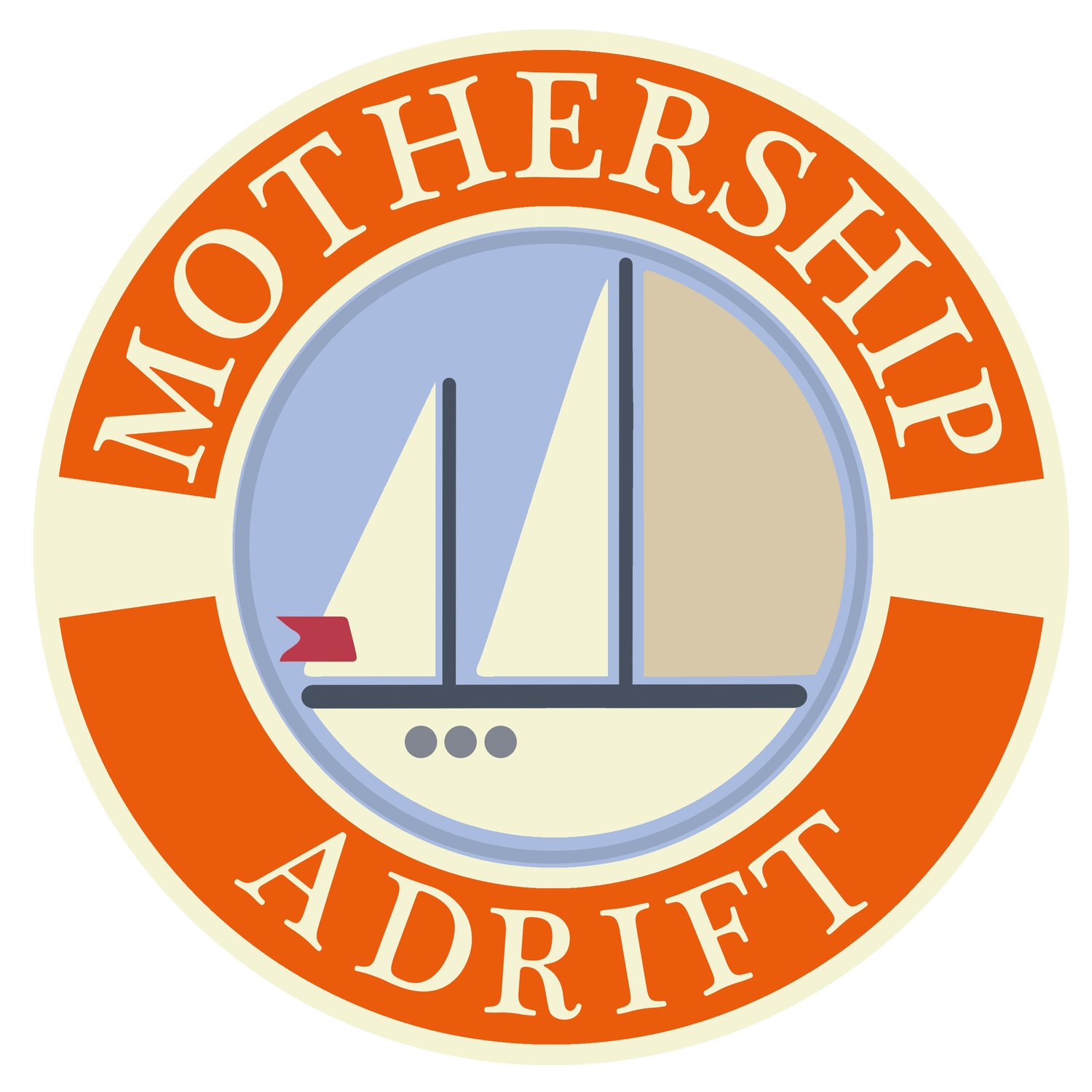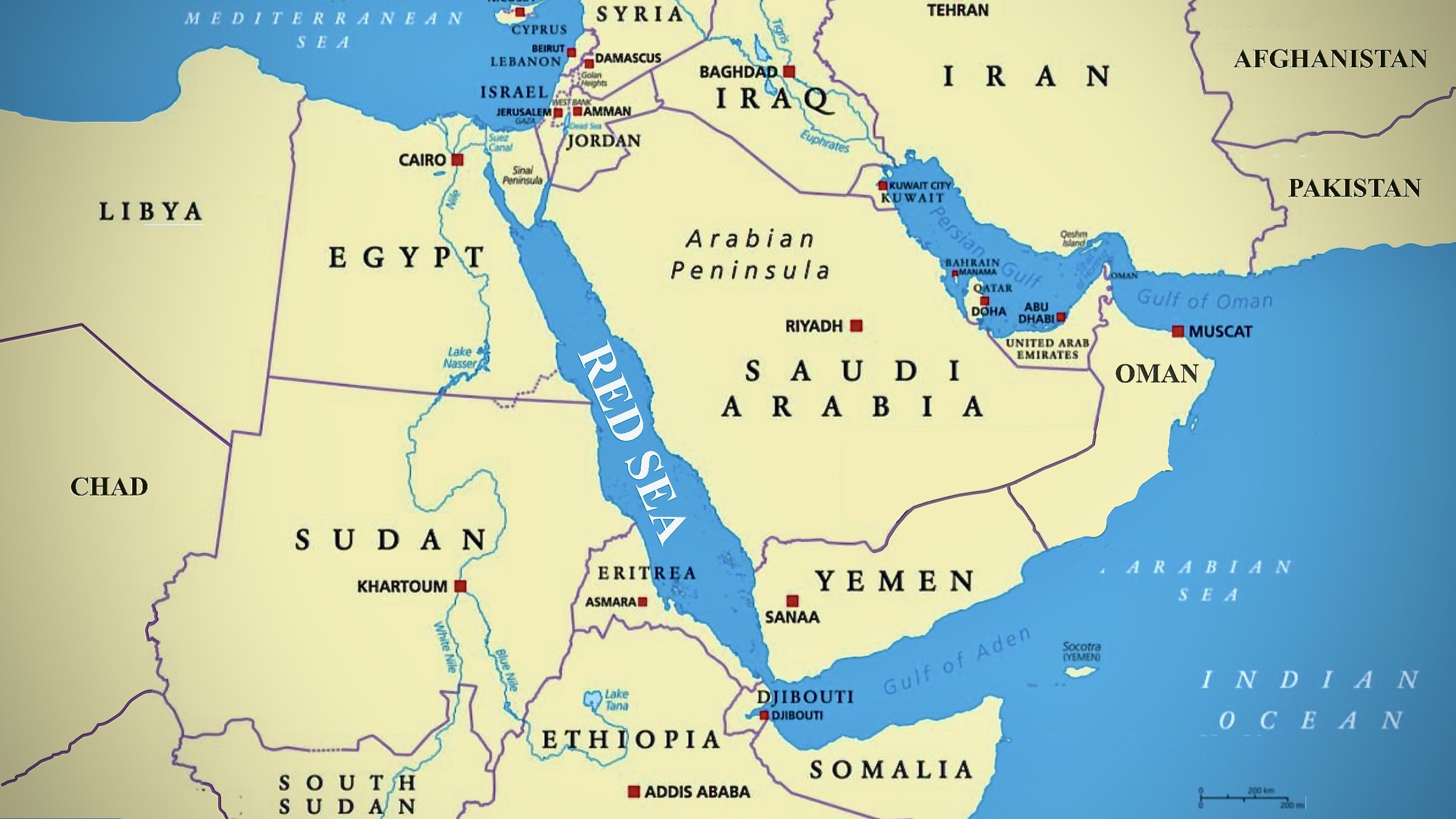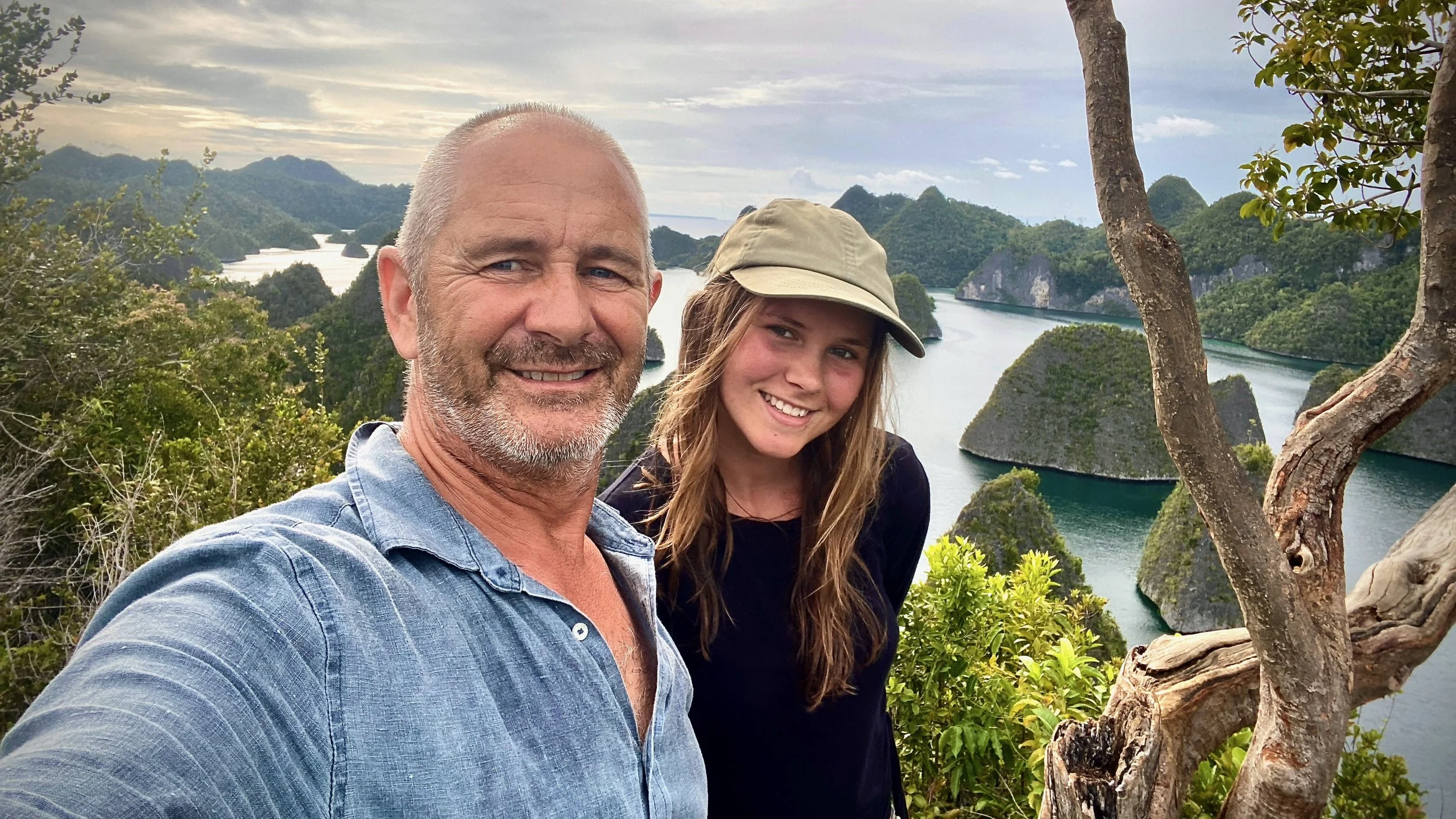Escaping Freedom
01-04-05
“But I don’t want comfort. I want God, I want poetry, I want real danger, I want freedom, I want goodness. I want sin. ”
Dividing lines
The ability to chase adventure, explore distant lands, and redefine life on our own terms is not an escape from the West—it’s a celebration of its greatest gifts. Little Adams Peak, Sri Lanka
If history had a main road, the Red Sea would be it. For millennia, it’s been less of a sea and more of a cultural conveyor belt—pharaohs, traders, warlords, and explorers have all sailed its waters, dragging their ideas, spices, and empires along with them. This narrow strip between Africa and Arabia has seen more human ambition, conflict, and commerce than just about anywhere else on the planet. And now, Mothership is about to join the club—though with considerably less gold and incense, and considerably more concern about diesel prices and unfriendly coastguards.
Because while the Red Sea has always been a crossing point of civilisations, it’s also been a dividing line between the worlds of Africa, Asia, and Europe—between those who enjoy the freedoms of movement, speech, and choice, and those who—how can I put this—have perhaps less of it.
This narrow strip between Africa and Arabia has seen more human ambition, conflict, and commerce than just about anywhere else on the planet. And now, Mothership is about to join the club!
As a Westerner sailing through waters patrolled by nations with, let’s say, a different interpretation of personal liberty, I’m acutely aware that what we take for granted back home—going where we please, saying what we think, living how we choose—isn’t a universal experience.
Wasted Freedom
It might not seem like it at times, but across the Western world, we live in an age of prosperity, freedom, and opportunity. While much of the rest of the world still battles poverty, oppression, and political turmoil, we enjoy the luxury of shaping our own destinies. Our societies are, by historical standards, astonishingly safe, innovative, and abundant. Starvation is unheard of, diseases are mostly inconveniences rather than death sentences, and while conflict exists, we’ve lived through nearly four generations of relative peace.
And yet, somehow, we seem trapped in a cycle of consumption, distraction, and anxiety. We complain about the trivial, whine about perceived oppression, and forget that the freedoms we enjoy are not only rare but hard-won. They didn’t appear out of thin air; they were fought for, refined over centuries, and built on a foundation of individual liberty, democracy, and economic opportunity.
So what we are left with is what the psychologist Barry Schwartz called the paradox of choice—where too many choices can lead to indecision, dissatisfaction, and angst. In short, the Western world has become a victim of its own success. It has forgotten how to be grateful and instead focuses obsessively on the trivial.
Quit Your Job and Travel the World
Some people seem to think that leaving the daily grind—quitting the nine-to-five, traveling the world, or forging a unique path—is a rejection of the West. But it’s precisely because of Western values that we can do these things at all. The ability to chase adventure, explore distant lands, and redefine life on our own terms is not an escape from the West—it’s a celebration of its greatest gifts.
The ability to chase adventure, explore distant lands, and redefine life on our own terms is not an escape from the West—it’s a celebration of its greatest gifts. Wajag - Indonesia
The West Isn't Just a Place
Let’s be clear: the ‘West’ isn’t just a spot on the map—it’s a set of cultural and philosophical principles that have shaped the modern world. These values—freedom of thought, the rule of law, property rights, and open markets—aren’t bound by geography. That’s why countries like Australia, New Zealand, Japan, and South Korea, despite their locations, are considered part of the ‘West', because these principles are what truly defines them.
These ideals aren’t universal—they’re the product of centuries of struggle, refinement, and, let’s be honest, a fair amount of bloodshed. And that’s precisely why people risk everything to reach Western nations. Nobody’s sneaking across borders to get into North Korea, Venezuela, or Iran. The world has been voting with its feet for decades, flocking to the places where freedom and opportunity aren’t just ideals but realities.
The ‘West’ isn’t just a spot on the map—it’s a set of cultural and philosophical principles that have shaped the modern world. Brisbane - Australia
Individualism—The Real Secret to Success
At the core of Western success is a simple but revolutionary idea: the individual matters. For most of human history, people were nothing more than subjects—pawns in service of kings, emperors, or the state. The West flipped that on its head. It said that individuals have rights, that they should be free to live as they choose, and that governments exist to serve them, not the other way around.
This belief in individualism isn’t just about politics. It’s why Western societies foster innovation, why hierarchies are flatter, and why power is, on the whole, held accountable. And for those of us who travel, explore, and reject conventional paths, this principle is everything. The decision to backpack across continents, live off-grid, or sail around the world as we do isn’t rebellion or rejection—it’s the ultimate expression of Western freedom.
The decision to sail around the world as we do isn’t rebellion or rejection of Western culture - it’s the ultimate expression of Western freedom. Wajag - Indonesia
Innovation and Prosperity: Not Accidents
Western societies prioritise human freedom—freedom to speak, create, trade, and think. This isn’t just a feel-good philosophy; it’s the reason why Western nations have led the world in technological advancements, artistic achievements, and economic growth. The Industrial Revolution didn’t happen by accident. It wasn’t geography or luck—it was freedom. The freedom to experiment, to challenge the status quo, and to take risks without fear of being thrown in jail for saying the wrong thing.
(Although many in the UK would possibly disagree with that right now!)
And this legacy benefits travellers more than anyone. The ability to work remotely, fund adventures through online entrepreneurship or property ownership, and cross the globe with a smartphone in your pocket—these aren’t mere conveniences. They are the direct results of Western ingenuity and a system that prioritises individual agency over state control, cultural pressure or religious doctrine.
Freedom in the West is about the ability to imagine a different life and then go out and live it. It prioritises individual agency over state control, cultural pressure or religious doctrine. Sierra Nevada de Santa Marta jungle - Colombia
A Life Without Limits
Freedom in the West isn’t just about economics or politics—it’s about the ability to imagine a different life and then go out and live it. In much of the world, your path is set at birth. Your career, beliefs, and even movement are dictated by forces beyond your control, either in the form of cultural boundaries or religious zealotry. In the West, on the whole, you decide.
That’s why the digital nomad, the long-term cruiser, and the expatriate family aren’t signs of societal splintering. They’re proof of the strength of Western culture. We are not shackled by tradition or government decree. We are free to explore, to create, and to reinvent ourselves in ways that most of humanity, past and present, could only dream of.
Some people look at those who reject the traditional path and see aimlessness, irresponsibility, or a lack of commitment. But what they’re really seeing is freedom. The ability to prioritise fulfilment over mere survival. The luxury of choosing adventure over drudgery. The fact that this is even possible should be a cause for celebration—not guilt, ridicule, or concern.
We have the ability to prioritise fulfilment over mere survival and the luxury of choosing adventure over drudgery. Kumai - Borneo
Freedom: Use It or Lose It.
Of course, none of this is guaranteed. Civilisations collapse, and progress isn’t inevitable. Freedom, prosperity, and innovation must be actively defended. If history has taught us anything, it’s that complacency is the fastest route to decline.
But as long as we continue to value free thought, free speech, and personal responsibility, we have the tools to adapt and thrive. And one of the best ways to remind ourselves of what we have is to experience cultures in which these freedoms don’t exist. Travel, adventure, and immersion in the world’s harsher realities serve as powerful reminders not only to be grateful for the things we have but also for what must be cultivated, protected, and defended back home.
While, of course, we should respect everyone’s right to freedom of expression in our own culture, we should be equally intolerant of corrosive practices, policies and acts that degrade Western values—otherwise, we are in danger of losing them.
“Two vast and trunkless legs of stone” Civilisations collapse, and progress isn’t inevitable and if history has taught us anything, it’s that complacency is the fastest route to decline. Sigiriya - Sri Lanka
It’s Not Escaping the Rat Race—It’s Levelling Up!
The Western world has given us more than just economic prosperity. It has given us the ability to go anywhere, do anything, and live authentically by making personal choices.
Escaping the rat race is not a rejection of the West—it is embracing its greatest gift: the ability to shape our own destinies.
When folks like us set off to sail around the world, we are not rats fleeing a sinking ship; we are adventurers setting sail on an open sea—free to chart our own course from the shores of a culture that makes it cheerfully possible to leave, and thankfully safe to return.
That's if Sir Keir Starmer allows it!








